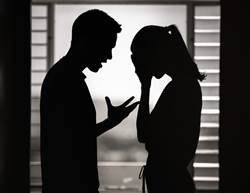If you and your partner are having trouble with a tough-to-resolve issue or it feels like the two of you are drifting apart, you might wonder whether couples counselling can help. So… can it?
It’s normal to be a little sceptical. Therapy is a big investment and the idea of sharing personal or private details about your relationship with a third party might make you feel uneasy.
But research shows that couples counselling really can be effective and not just for relationships in crisis. “Every marriage needs to be a partnership,” says psychotherapist Tina B. Tessina. “Therapy can teach you how to do this, even if you already get along.”
Here’s what every couple should know about couples counselling, what it’s really like, and how to tell if it’s making a difference.
What can you expect during couples counselling?
Nearly 50 per cent of married couples say they’ve attended some form of counselling with their partner, according to a recent study. Each session typically runs for 60 to 90 minutes in your therapist’s office, which requires extra time, money and emotional energy. Couples counselling is not usually covered by private health insurance unless referred under a mental health treatment plan, and sessions can cost a bit pricey. So if you and your partner are committing to it, it makes sense to give it your full effort.
That means being prepared to put in the work to communicate honestly, truly listen to your partner (even when it’s hard), and own up to your actions and blind spots. “Feeling like the therapist should be able to fix the couple while they passively take in therapy will not work,” says marriage and family therapist Sarah Epstein. “The couple must be willing to grapple with discomfort, dig into issues and keep working on the relationship at home.”
Identifying your goals for counselling at the outset can also be helpful. Your therapist can guide you and your partner to set a target – like arguing less or feeling more emotionally connected – says marriage and family therapist Risa Ganel. If you’re looking for something more measurable, ask your therapist about tools like an Outcome Rating Scale or Session Rating Scale that can track your progress over time.
So, does couples counselling really work?
Yes, research suggests that therapy really can strengthen your relationship. Studies have shown that counselling helps couples feel more satisfied, improve coping capabilities, and deepen both emotional and physical intimacy. Sounds pretty good, right?
That’s because couples counselling teaches you how to talk and listen more effectively. “Fighting is not a necessary part of marriage, but communication is, and therapy will help you change your fighting to communication,” explains Tessina. “When you learn how to listen to each other and how to communicate without confronting, arguments become sessions for understanding and working things out.”
But does every couple benefit from couples counselling?
Maybe you and your partner are facing an issue you already suspect could be resolved through therapy. But if you’re on the fence about it, these questions may help, says Epstein. Couples counselling might be worth exploring if:
- You feel like you’re stuck in the same argument, just in different forms
- You feel disconnected, like you’ve lost each other in the chaos of daily life
- Sex and intimacy have faded, and you feel alone
- You sense something isn’t right and you’ve already tried to fix it
- You’ve been through a major life upheaval, like adding a child to the family, taking in a parent, changing jobs or facing a serious health diagnosis
That said, therapy isn’t right for every person or every couple. Couples counselling is not appropriate in cases where there’s domestic violence or active drug or alcohol abuse, says Ganel.
It also won’t be effective if one or both partners aren’t genuinely committed to the process. “If you go to couples therapy just so you can say you ‘tried everything’ but you’re not really there to try, it’s a set-up for failure,” Ganel says.
Just as important? Be willing to show up as your best self, even when things get heated. “A surefire way to sabotage couples therapy is to be defensive, use what’s said in session against your partner at home, or argue in session the same way you do at home,” Ganel says. These are the habits that can hold you back from making progress.
How long does it take for couples counselling to work?
Working through relationship issues and improving communication in therapy is a process, but it doesn’t need to drag on forever. “I want couples to be able to implement the skills they learn in session to the point where they no longer need me,” says Ganel, who estimates many couples can see significant benefits after eight to 10 sessions.
That said, laying all your feelings on the table can stir up some emotional turbulence early on. “Counselling can lead to feeling more raw before things start to improve,” says Epstein. But after those first few sessions, you should start to notice some positive shifts. You might feel more heard and understood, or simply find you and your partner being gentler with each other, Epstein adds. Even your sex life might begin to improve.
Of course, even a few successful months in therapy won’t guarantee smooth sailing forever. New challenges can still come up. When they do, touching base with your therapist can be a helpful reset. “A marriage therapist may develop a relationship with a couple over the course of many years, in which the couple checks in on the health of their relationship or comes in during a particular transitional moment or stressful time,” Epstein says.
The takeaway: Couples counselling is a healthy and proven way to work through ongoing relationship challenges, but it only works if both partners are genuinely committed to the process.



.jpg&h=90&w=90&c=1&s=1)






